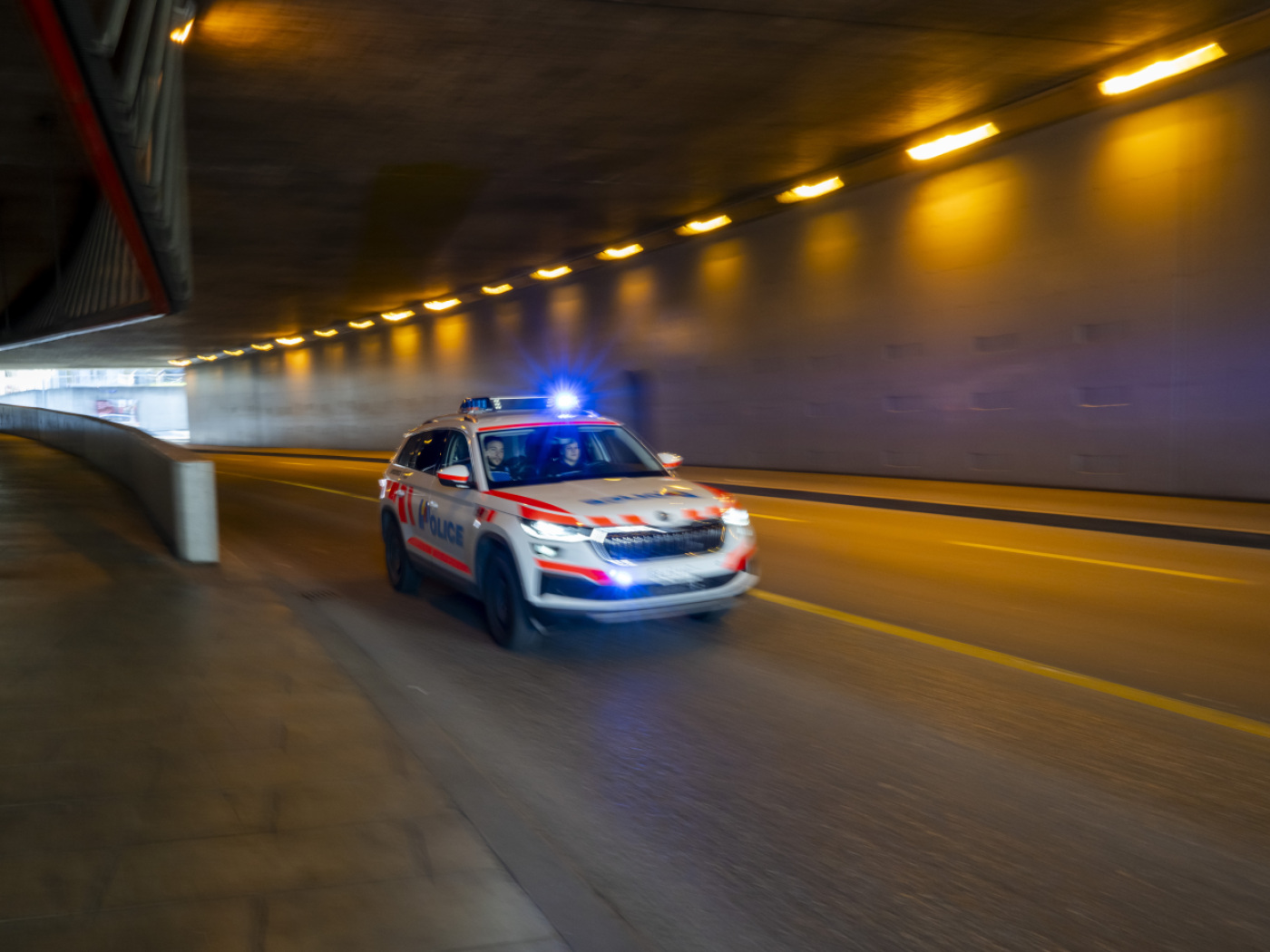
Geneva police officer loses appeal over speeding case

The Swiss Federal Supreme Court has rejected an appeal by a Geneva police officer challenging his conviction for speeding during a car chase.
The appellant criticised the cantonal court of justice for not exempting him from any penalty, citing in particular the new provisions of the Road Traffic Act.
The facts date back to the morning of 26 November 2019. Following the dangerous behaviour of the driver of a fleeing vehicle, the police vehicle, siren and blue lights on, set off in pursuit. On several occasions, he had exceeded the speed limit of 100 km/h – without deducting the safety margin – on stretches of road limited to 50 km/h. He had also disregarded two red lights, crossing junctions without slowing down.
+Get the most important news from Switzerland in your inbox
In its ruling of 13 August 2024, the Appeals Chamber of the Geneva Court of Justice concluded that the appellant had taken “grossly excessive” risks. Mitigating the sentence imposed by the court of first instance, it sentenced him to a fine of 50 days at CHF150 ($197) per day, suspended for two years, for serious violation of the Road Traffic Act.
New article invoked
In his appeal to the Federal Court, although he did not contest the offence, the police officer argued that the conditions for benefiting from the impunity provided for in article 100 of the LCR had been met. This article, which came into force on 1 October 2023, stipulates that the driver of a priority vehicle (fire brigade, police, customs) who contravenes traffic regulations during an urgent official journey is not punishable if he exercises the caution required by the circumstances. If this is not the case, he is still punishable, but his sentence must be reduced.
According to the Federal Court, the cantonal Court of Appeal did not violate federal law by considering that the appellant had not complied with the rules of prudence. Caution is exercised when the vehicle’s speed does not exceed 1.5 times the speed limit.
The driver must also comply with the principle of proportionality. However, the behaviour of the fleeing driver did not justify taking such risks. According to the previous authority, the aim of the chase had never been to save the lives of third parties or to catch up with a fugitive suspected of causing harm to others.
Adapting your driving
The use of blue lights and two-tone horns does not exempt the driver of a priority vehicle from adapting his driving to the traffic conditions. When crossing a crossroads on red, for example, you need to drive slowly enough to be able to stop in time.
Although traffic was not heavy at that time of day, the police officer’s behaviour was all the more dangerous because he was driving in town, on busy streets, in the presence of other road users and pedestrians. Nor can the fact that no accident occurred be attributed to the appellant.
Translated from French by DeepL/ds
We select the most relevant news for an international audience and use automatic translation tools to translate them into English. A journalist then reviews the translation for clarity and accuracy before publication.
Providing you with automatically translated news gives us the time to write more in-depth articles. The news stories we select have been written and carefully fact-checked by an external editorial team from news agencies such as Bloomberg or Keystone.
If you have any questions about how we work, write to us at english@swissinfo.ch.

In compliance with the JTI standards
More: SWI swissinfo.ch certified by the Journalism Trust Initiative




























You can find an overview of ongoing debates with our journalists here . Please join us!
If you want to start a conversation about a topic raised in this article or want to report factual errors, email us at english@swissinfo.ch.